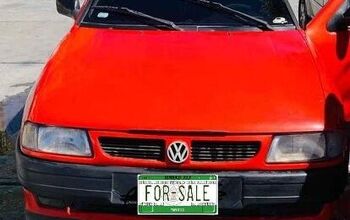Happy Days Are Here Again? Analyst Sees 15 - 16 Million Cars This Year

James W. Paulsen, chief investment strategist at Wells Capital Management, sees U.S. auto sales bouncing “back to normal” by year’s end. “Normal” being “a rate of 15 million to 16 million vehicles.” Bloomberg painted a nice Chart of the Day, which seems to support that gutsy theory.
Paulsen and Bloomberg charted the recoveries after the 1981-1982 and 1990- 1991 recessions, and overlaid them with the current sales rebound. If that rebound behaves like the previous rebounds, the chart says anywhere between 14 and 15 million by year’s end, but let’s not quibble.
Paulsen and Bloomberg are pretty much alone with that forecast. Despite a good December, J.D. Power kept its 2011 forecast at 12.8 million units. Edmunds reports a “somber atmosphere” from the Detroit Auto Show, and “is forecasting 12.9 million for 2011.”
But then, Paulsen isn’t in the car business, he is flogging stocks. Especially car stocks that “may again have a good year”, Paulsen writes. Let’s hope so.

Bertel Schmitt comes back to journalism after taking a 35 year break in advertising and marketing. He ran and owned advertising agencies in Duesseldorf, Germany, and New York City. Volkswagen A.G. was Bertel's most important corporate account. Schmitt's advertising and marketing career touched many corners of the industry with a special focus on automotive products and services. Since 2004, he lives in Japan and China with his wife <a href="http://www.tomokoandbertel.com"> Tomoko </a>. Bertel Schmitt is a founding board member of the <a href="http://www.offshoresuperseries.com"> Offshore Super Series </a>, an American offshore powerboat racing organization. He is co-owner of the racing team Typhoon.
More by Bertel Schmitt
Latest Car Reviews
Read moreLatest Product Reviews
Read moreRecent Comments
- Golden2husky Tuscadero? Wonder if the interior comes in Leather...
- Lou_BC I don't like black. I wouldn't want white because that's your standard fleet colour. I lean towards colour's that are less likely to show scratches and dings. The blue on my ZR2 is nice colour but a bad colour for showing up trail rash and dust. It wasn't my 1st choice but at the time it was the only truck I could find at a price I was willing to pay.
- Michael I don’t have the luxury of choosing the color of my car and even people in my life who have recently purchased relatively expensive new cars are having their choice of what local dealers have or what they’re getting in soon, shades of grey and white. If I had the choice I would have gone with color when I was younger but now would choose a silver, grey, or black. Whatever looked best on the model.
- CoastieLenn That price seems a bit high for a high mileage mid-tier Accord, especially a coupe whose resale is typically lower than the stalwart sedan. I do like this generation coupe a lot though.
- La3541 Red is my go-to color. I love candy-apple red (guards red on Porsche). I have had several red cars. Maroon is not good though.I have always loved British racing green and recently got my first one. A British racing green 4-series that I had to special-order.Silver, black, gray, and white are pretty boring. However, as RNA656.. stated, white looks good on some cars. for more boring colors, I also like chalk on porsches. Nardo gray on Audis is pretty nice.


































Comments
Join the conversation
Can you list his stock recommendations so that I can do the reverse? I thought analysts were trying to get it right, not be "controversial" Wasn't the 81 recovery after a double dip from inflation? That's not like today Wasn't the 91 recovery coinciding with the start of ABS driven loan issuance? That's not like today either. If it tracks the 1932 recovery it will be 21MM!!! Oh, wait. Different conditions then too. Jeez, maybe each one is different.